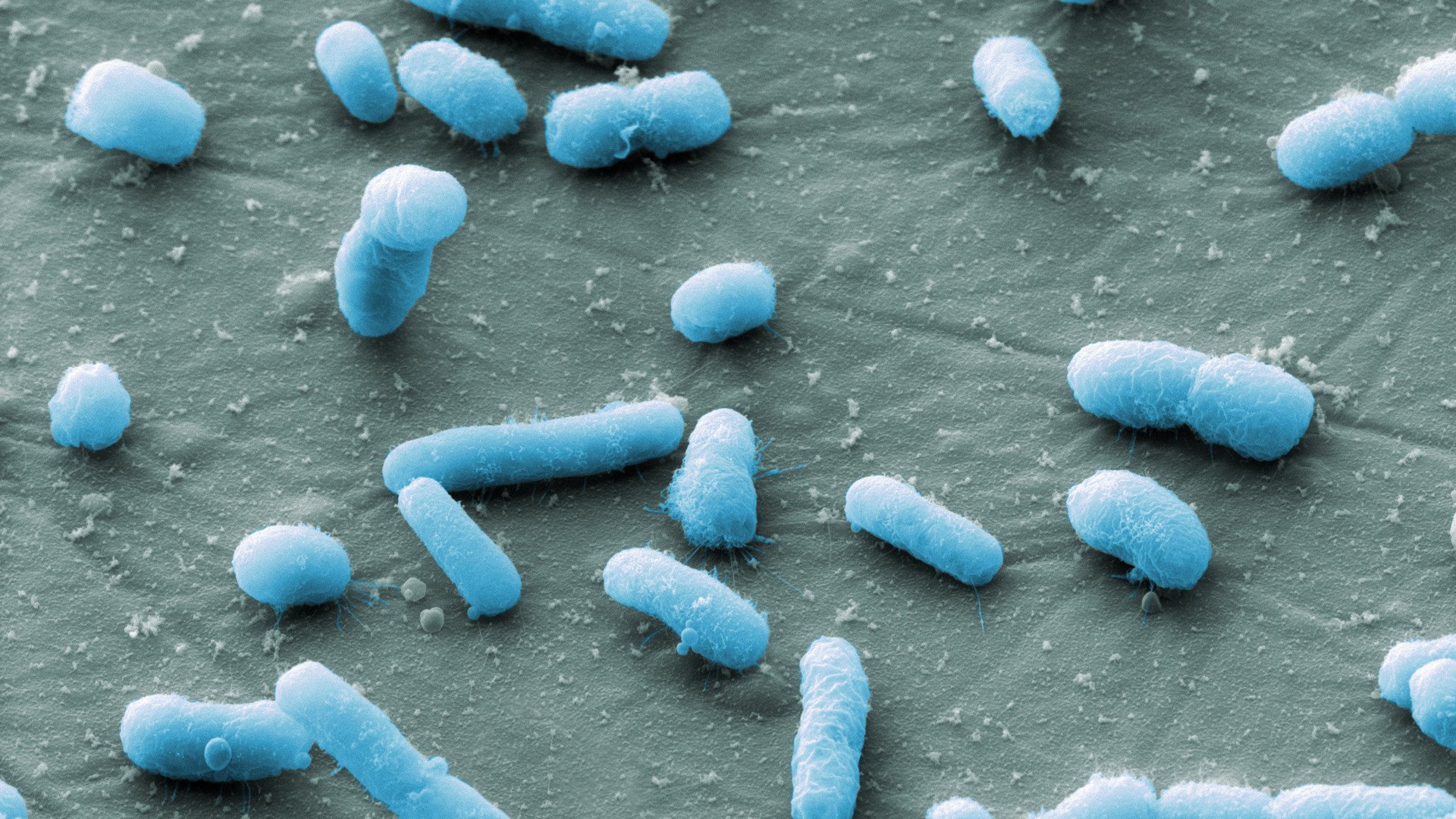Escherichia coli (or E. coli for short) is a bacterium that occurs naturally in the intestines of people and animals. There it provides protection against harmful bacteria. However, some strains can cause food-borne infections.
Escherichia coli (or E. coli for short) is a bacterium that occurs naturally in the intestines of people and animals. There it provides protection against harmful bacteria. However, some strains can cause food-borne infections.
Escherichia coli occurs naturally in the intestines of people and animals. Even though E. coli has a bad name, this bacterium is still very useful to us. In the large intestine, it prevents the uncontrolled growth of harmful bacteria.
Beneficial intestinal bacterium
E. coli is the most well-known intestinal bacterium. In popular terms, E. coli is even known as the ‘poo bacterium’. This is remarkable, as there really aren’t so many of them in your intestines. The reason that it is so well known is mainly due to its role in microbiology. It is used, for example, in the testing of drinking water. Unlike many other gut microbes, E. coli can also survive for a long time outside the body. It is found in places such as water taps, door handles or in water. Therefore, this bacterium is widely used to reveal possible traces of poo in drinking water.
Pathogen
E. coli is generally important for intestinal health. This bacterium occurs in a variety of strains, most of which do not cause disease symptoms. However, some strains can be dangerous. They can occur in raw meat, raw vegetables and unpasteurised milk products.
E. coli as a model species
A harmless type of E. coli has been used in various types of research since 1927. One advantage of E. coli is that it divides rapidly. As a result, scientists can culture many generations in a short period of time. Furthermore, its genome is composed of relatively simple genes, and has been fully mapped. All of which makes this bacterium highly suitable for the purposes of science.

